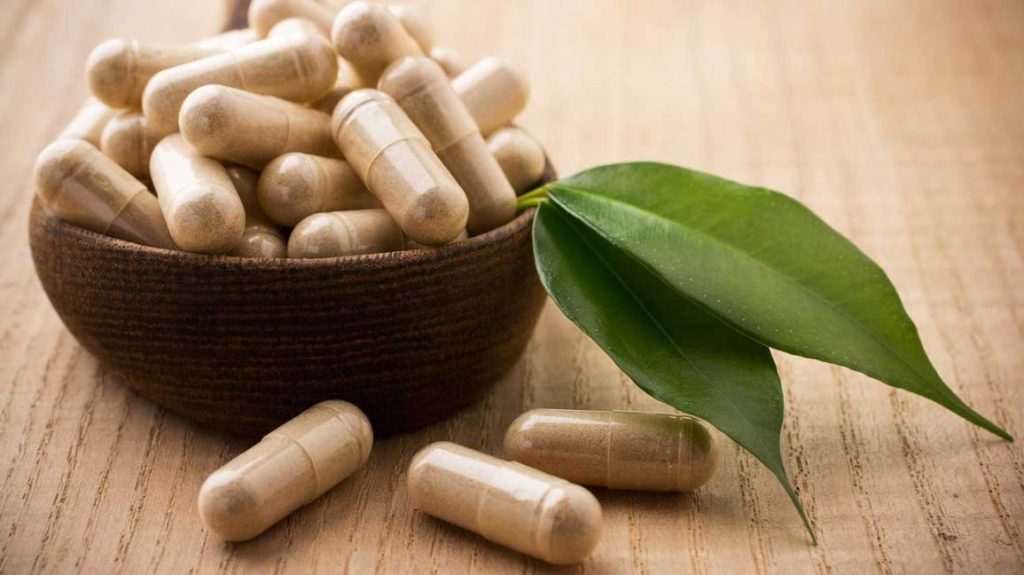Adaptogens are becoming all the rage these days.
Not only that, but they have some solid research backing up their ancient claims to fame. One such adaptogen is the fun-sounding and hard-to-spell ashwagandha root.
Well-known for its testosterone boosting properties, ashwagandha root has become a mainstay in many supplements.
In this article, we’re going to go deep with Ashwagandha, showing you what it is, what it’s used for, the benefits of taking an ashwagandha supplement, dosage, and side effects.
Lastly, we’ll give a brief overview of the top available ashwagandha supplements, letting you know which ones are worth your while.
If you’re ready, let’s get into it!
Best Ashwagandha Supplements
- Havasu Nutrition Premium (1,000mg)
- Cooper Biotech (1,950mg)
What is Ashwagandha?

Solid question.
Ashwagandha is a plant that loThere are however tell-tale signs of hypogonadism which can present irrespective of age.oks like a small shrub with green-yellow flowers. It’s native to India and parts of North Africa.
While the plant itself looks beautiful and may have medicinal properties of its own, the root is what is used in the majority of supplements.
It has a plethora of alternative names, such as Indian ginseng, winter cherry, and poison gooseberry.
Ashwagandha root is light brown in color, almost tan. In fact, it looks like a thin tuber, almost like a sweet potato or yam.
The root is typically ground into a flour or has the liquid extracted from the root. That’s why supplements almost always have “ashwagandha root powder” or “extract” in them, not the whole plant or simply the root.
Read Also: Sports Nutritionist’s review of Optimum Nutrition’s Serious Mass
Ashwagandha Root KSM-66
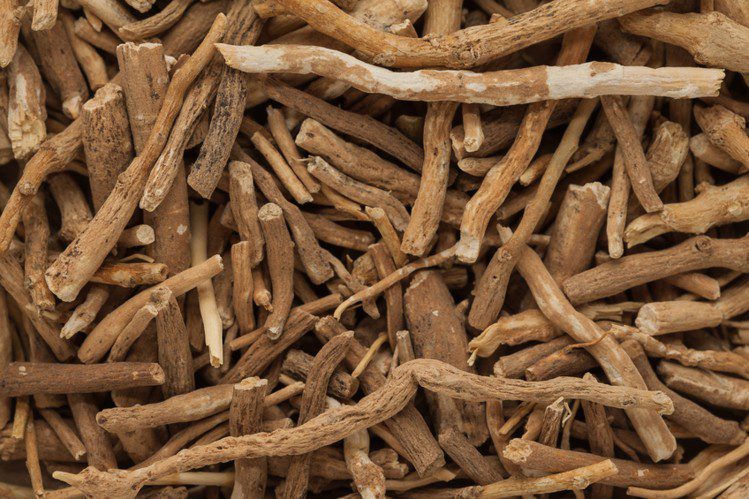
This is a variant of the traditional ashwagandha root. KSM-66 is highly concentrated as an extract of only the root.
The company that creates this version, Ixoreal Biomed, uses something called “Green-Chemistry” principles in the extraction process; they don’t use any alcohol or chemical substances/solvents.
With over 14 years of research and development, it’s a solid upgrade from the traditional ashwagandha powder or root extract.
When looking for your go-to supplement, if you are choosing between ashwagandha root powder/extract and KSM-66, go with the latter.
What is Ashwagandha Used For?
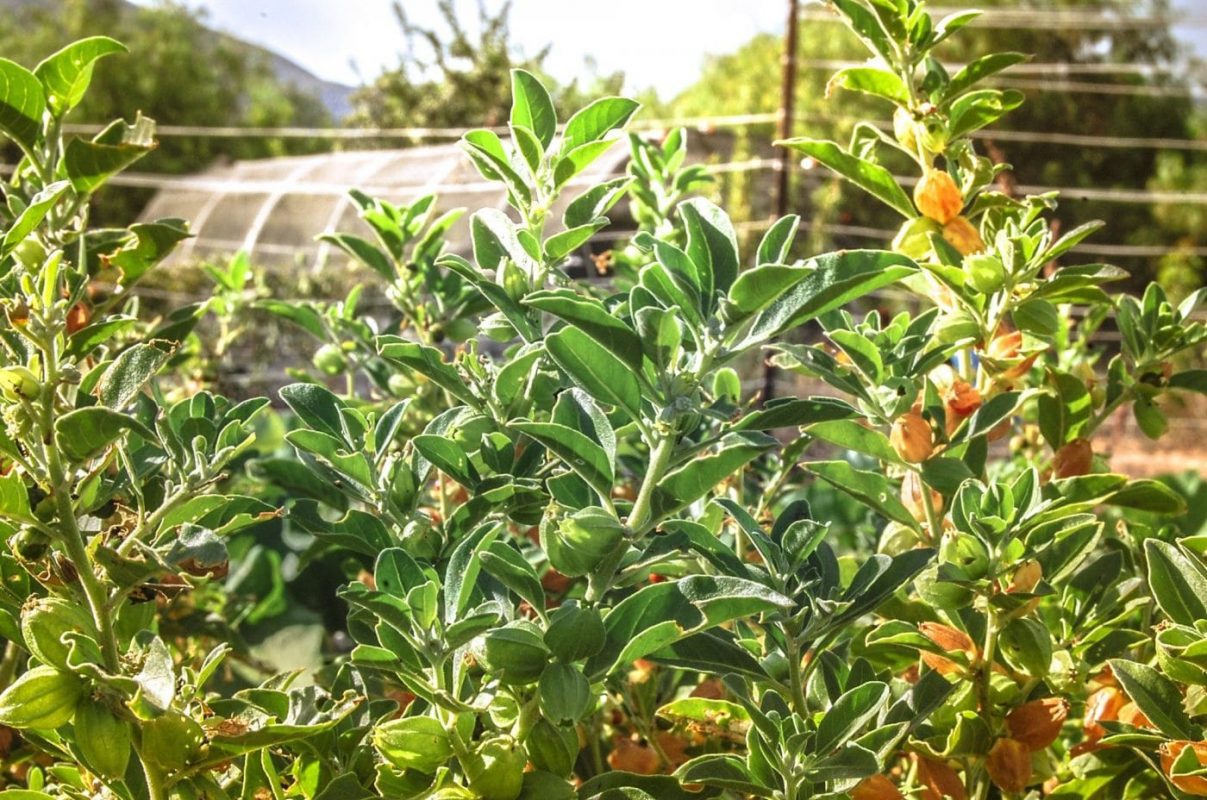
Ashwagandha was traditionally used for medicinal purposes in North Africa, the Middle East, and India.
It is an herb that was used in Ayurvedic medicine, which is hundreds of years old and uses a combination of herbs, special diets, and other natural practices to treat various conditions and diseases.
Historically, it’s been documented that ashwagandha has helped with treating a range of things, like arthritis, constipation, stress, insomnia, diabetes, fevers, snake bites, and more.
Nowadays, ashwagandha root is typically used to help increase testosterone and maintain a healthy balance of hormones.
Not only that, but it’s still used as an adaptogen to treat mental conditions (stress, anxiety, depression) by lowering cortisol levels.
How Does Ashwagandha Work?
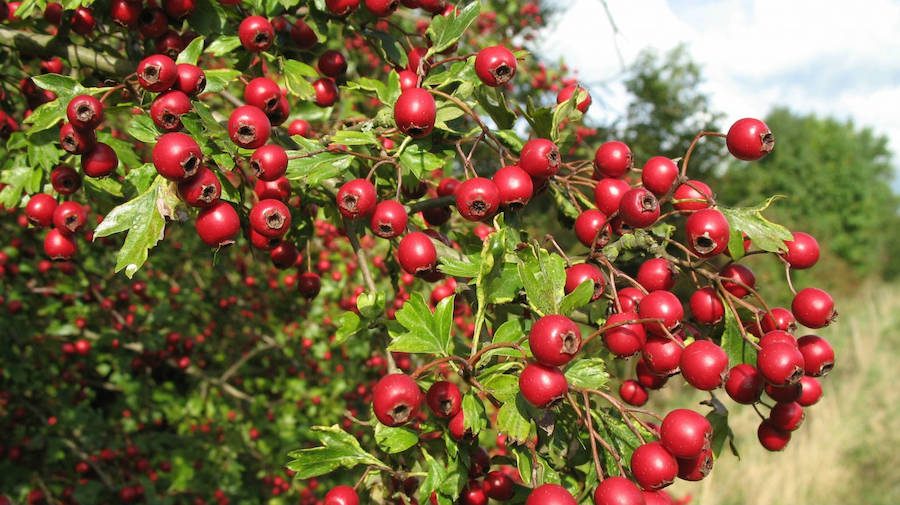
Ashwagandha naturally aids the body to produce optimal levels of certain hormones.
It triggers numerous systems to either increase or decrease the natural production of things like testosterone, cortisol, and even inflammation responses.
Ashwagandha breaks the blood-brain barrier and sends signals throughout your body to make more or less of the hormones you’re looking to alter.
Unlike steroids or certain medication, it doesn’t include anything exogenous, which would be the actual testosterone or dopamine that is artificially made and then injected into your body.
Instead, it prompts your body’s systems to produce these hormones endogenously, which allows your body to get into the groove of doing these things on its own.
Does Ashwagandha Increase Testosterone?

There have been some studies regarding whether or not ashwagandha root does, in fact, increase testosterone. Many of these studies confirm that testosterone is boosted with the supplementation of ashwagandha.
Your hormone levels are definitely affected by this potent herb, so it only makes sense that it affects testosterone, especially in men with low testosterone levels.
Not only that, men who have taken ashwagandha have experienced higher antioxidant levels.
This reduces stress in the body, giving your systems the chance to balance your hormones and increase the quality of sperm. All of this to say, without a doubt ashwagandha aids in the healthy production of testosterone.
Is There a Connection Between Testosterone Levels and Cortisol?
Testosterone is considered the key anabolic hormone, with multiple physiological functions, within the human body. In males, testosterone is mainly produced and secreted by the Leydig cells within the testes.
Research has shown a negative relationship between testosterone levels and cortisol i.e. as cortisol increases testosterone decreases and vice versa (in observation). Researchers have theorized that this is due to cortisol inhibiting the function of the Leydig cells.
The link between Ashwagandha supplementation and restoring testosterone levels is growing. Researchers have found ashwagandha to significantly reduce cortisol levels (by up to 28%). Reducing cortisol may therefore explain the link between ashwagandha supplementation and testosterone levels increasing.
Low Testosterone in Men
Suppressed testosterone levels (hypogonadism) in men are associated with a range of physiological and psychological health issues.
There are a number of reasons as to why testosterone levels may be reduced. Whilst it is not always the case, the issues driving hypogonadism are typically distinct between older and younger male populations.
In older males, physiological changes relating to aging and the testes specifically, account for the majority of decreased testosterone levels in this population.
In younger male populations, hypogonadism may be attributed to a congenital disorder or acquired condition. These acquired conditions can range from steroid use, the use of other drugs, trauma, diabetes and obesity (to name a few of the more prevalent issues).
Hypogonadism is becoming an increasingly common issue. It has been reported that 12%, 19%, 28%, and 49% of men greater than 50, 60, 70, or 80 years of age, respectively, fit the criteria of hypogonadism.
Symptoms of low testosterone in men may include
Paradoxically, diagnosis of hypogonadism can be a challenge. It is quite a sensitive subject and those symptoms which commonly present in older populations, such as decreased libido or erectile dysfunction, may be difficult to openly discuss.
In younger populations these symptoms are not usually present, and young men instead commonly complain of low energy making it difficult to diagnose on two fronts; avoidance and lack of awareness / clarity.
There are however tell-tale signs of hypogonadism which can present irrespective of age.
- Depression
- Irritability/ mood swings
- Increased Fatigue (self-perceived and exercise related)
- Loss of muscle mass
- Increased body fat
- Enlarged breasts (gynecomastia)
- Decreased bone mass
- Hair loss
- Erectile dysfunction
- Low semen count /sperm production
- Poor memory or focus
- A low sex drive
- Low blood count (anaemia)
- Sleep apnea
Can Women Use Ashwagandha?
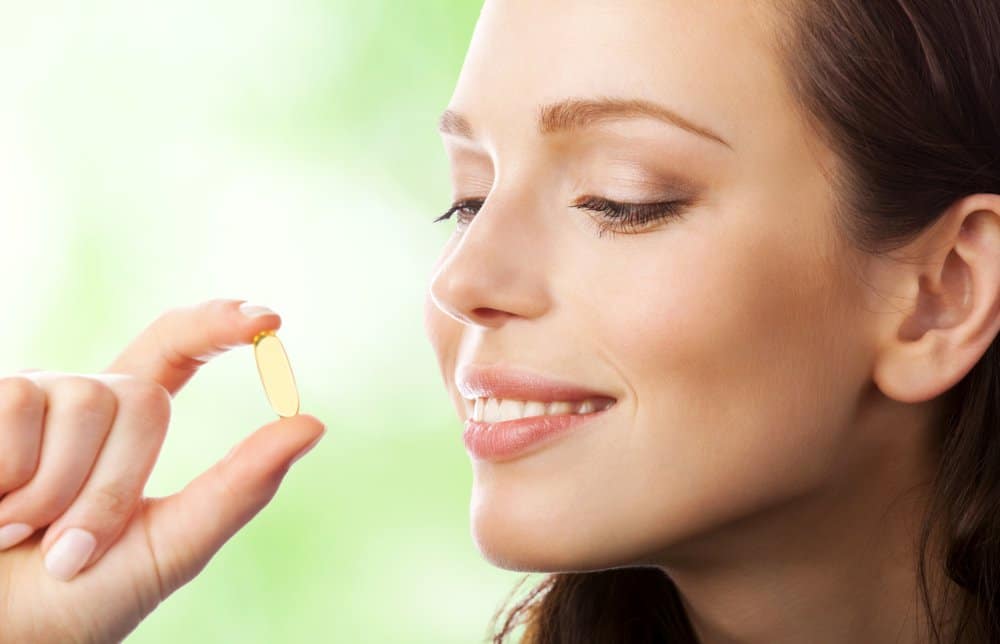
Yes. Ashwagandha is a powerful adaptogen, one that benefits both males and females. The reason being is ashwagandha improves the hormone regulation of the body.
When it’s taken by a man, it affects the Hypothalamic-pituitary-gonadal axis (HPGA), which determines testosterone levels.
In females, however, ashwagandha still lowers your stress, which gives your body the opportunity to produce ample amounts of healthy hormones.
These hormones play a vital role in fertility, libido, healthy menstruation, and other female-oriented bodily functions.
While it may not provide the same testosterone-boosting effect that males receive, women can benefit tremendously from taking an ashwagandha supplement.
Stress messes with all of us; this root can aid in brain power, boost your immune system, and simply help you chill the hell out. And this is crucial no matter your gender.
Ashwagandha Benefits

Of course, ashwagandha comes with a whole host of advantages. Here are the main benefits you should expect from supplementing this root:
- It is an ancient medicinal herb
Ashwagandha belongs to the family of traditional Indian medicinal herbs; Ayurveda. The botanical name, and how it may also be known, is Withania somnifera. In Sanskrit the name for the plant, ashwagandha, translates to “horse smell” (ashva means “horse” and gandha means “smell”) to reflect the smell of its root. Whilst other parts of the plant are used, it is primarily extracts from the root which are incorporated into supplementation formulation.
The biologically active chemical constituents of ashwagandha include alkaloids, steroidal lactones and saponins. These compounds exert a range anti-stress and immunomodulatory functions.
- Improved blood sugar regulation
Improved blood sugar regulation can have a whole host of benefits, extending far beyond clinical cases. Studies have shown that ashwagandha increases insulin secretion and improves insulin sensitivity. In addition, it lowers blood sugar levels in both normal adults and those with diabetes. Ashwagandha has been found to be just as effective as oral diabetes medication for people with Type 2 diabetes.
- May have anticancer properties
Mounting evidence from cell culture and animal studies suggest that ashwagandha. possesses anti-tumorigenic properties. It was first demonstrated experimentally that the root extract resulted in lowered cancer incidence in vivo in 1967.
Researchers are just starting to scratch the surface of molecular pathways modulated by ashwagandha and its bioactive compounds in order to counter the carcinogenic process. Not only has ashwagandha and its respective compounds been shown to have therapeutic potential against cancer, some of them have also been shown to possess cancer preventive properties.
- Can reduce cortisol levels
This is a big one for any and all human beings. Stress rules our days, taking our productivity, strength, and even libido away from us. Ashwagandha has been found to block the stress pathway in the brains of rats, along with multiplehumanstudies that improve stress and anxiety disorders as well. (Plus, it reduces cortisol levels).
- May help reduce stress and anxiety
Ashwagandha is arguably best known for its benefits towards improving levels of stress and anxiety. Studies show that supplementation of ashwagandha significantly reduces the symptoms of stress and its comorbidities (fatigue, temporary cognitive impairment, etc.) as well as biomarkers such as cortisol. Evidence also suggests potent anxiolytic (anti-anxiety) effects for those with chronic stress and suffering from anxiety disorder. It may also improve social anxiety.
- May reduce symptoms of depression
Researchers have discovered anti-depressive effects following ashwagandha supplementation, although they are less notable than the anti-anxiety effects.
- Can boost testosterone and increase fertility in men
Ashwagandha appears to provide a potent effect on increasing testosterone and improving fertility in men. When provided with ashwagandha, men suffering some degree of infertility or low fertility, saw improvements in sperm quality which also came alongside subtle boosts in testosterone around the range of 14-40% or 10-22% higher than before the study. Another study also found a significant increase in testosterone (15%) in healthy, resistance training men who had no fertility issues.
- May reduce inflammation
It appears that ashwagandha, or at least the bioactive compounds within it, exert a potent anti-inflammatory effect. This has been reflected in studies which have evaluated it’s benefit on the symptoms of inflammation (such as chronic pain) associated with arthritis.
- May improve brain function, including memory
Ashwagandha may not just improve brain function and memory but also protect it. Studies have shown the ability of ashwagandha to promote neurogenesis, the creation of new neurons. Neurogenesis has been implicated in learning, memory, pattern separation, and cognitive flexibility.
- Is safe for most people and widely available;
Ashwagandha appears to be relatively safe with only minor side effects seen in some rare instances (mild drowsiness and sedation), which could have conflicting influences unrelated to supplementation itself.
- May Increase strength and muscle size
Body composition is really important for men. Luckily, ashwagandha root supplements have been shown to improve muscle strength in as little as 30 days. Not only that, ashwagandha has been found to add exceptional size to muscle in men.
- Fat Loss Promotion
As a compliment to the first benefit, ashwagandha improves both sides of the body composition coin. Not only does it add muscle strength and size, but it also cuts down body fat percentage. Compared to a placebo group in one study, those who took ashwagandha recognized double the reduction in body fat percentage. And, as is widely known now, additional muscle ramps up your metabolism, which helps you stay lean.
- Additional Endurance
Heads up all of you endurance athletes! Ashwagandha has been studied against a placebo for improving your VO2 max (maximal oxygen uptake) and time to exhaustion on a treadmill. Ashwagandha improved both of these parameters, while the placebo group saw no improvements. That, combined with extra antioxidants, makes ashwagandha a potent endurance booster.
- Better Sleep
Seeing as it improves stress levels, it’s logical that ashwagandha aids in sleep as well. People with insomnia due to chronic stress can literally rest easy when they supplement with ashwagandha. Also, when you start to use fat for fuel (which is what happens when you take ashwagandha), you can get a better night’s sleep. By optimizing the body’s ability to burn fat, you are supporting healthy sleep.
- May lower blood cholesterol and triglycerides
On top of reducing inflammation in the body, this root also lowers both types of cholesterol, as well as triglyceride levels. Ashwagandha has been found to increase the activity of native killer cells, which helps you stay healthy and fight disease. Then, it also decreases the bad (LDL) cholesterol, which keeps your heart healthy. Lastly, triglycerides are blood fats that, when in abundance, threaten your heart health. Ashwagandha lowers triglyceride levels.
There are many other potential benefits of ashwagandha supplementation, such as improved brain health, anti-cancer properties, and assistance with Alzheimer’s and arthritis.
However, the main advantages for an athlete are displayed above. With so many benefits, it’s clear that at least testing ashwagandha supplements are in your best interest.
Ashwagandha Dosage
How Much Ashwagandha Do You Need Daily?
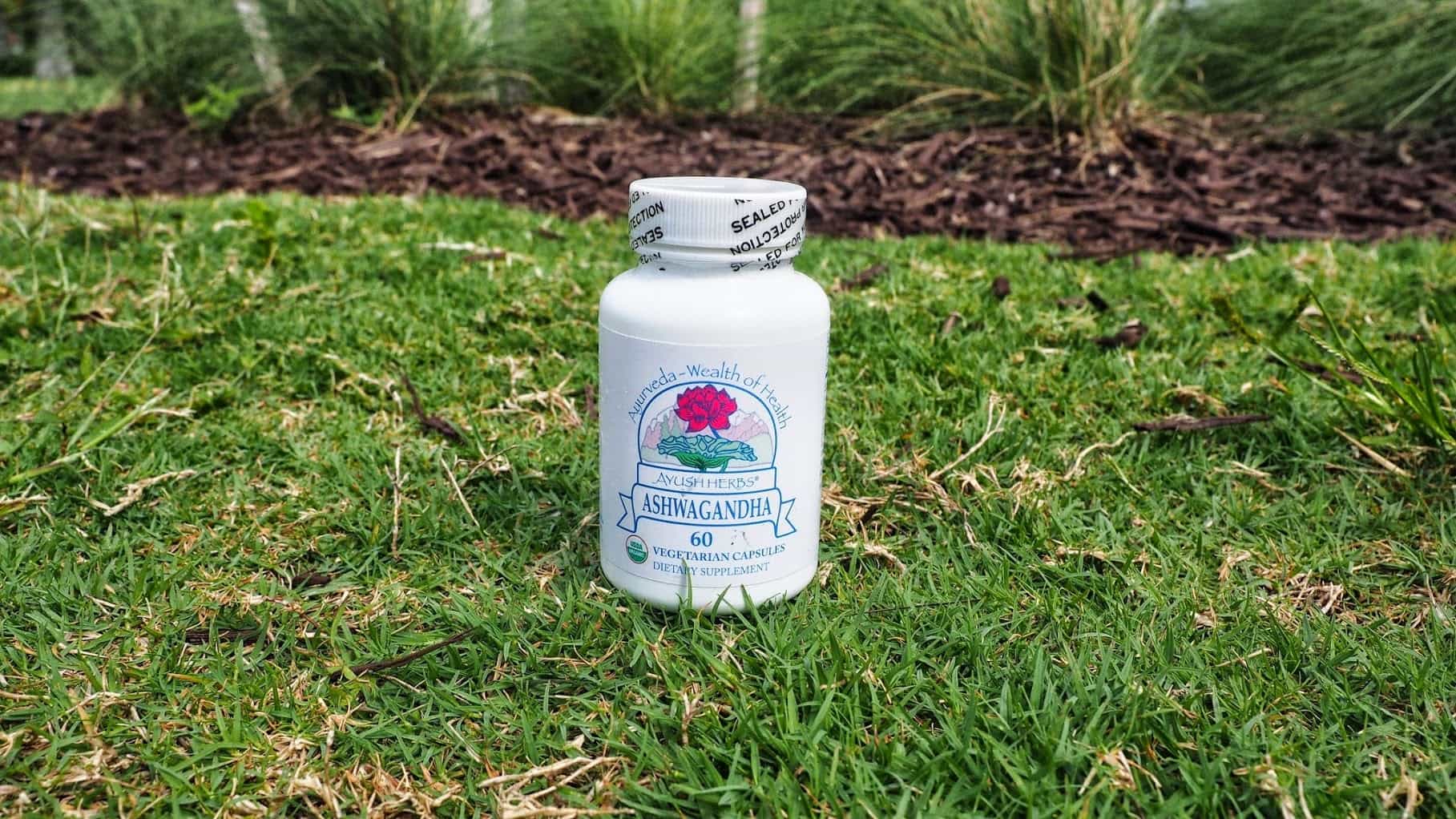
This depends on what you’re specifically taking ashwagandha for. But, for the most part, you can supplement with a dose between 250mg and 500mg daily.
This should be taken for about a month, or longer. If you want optimal results, consider taking it for a long time (2+ months).
When Should You Take It?
Again, this depends on what you’re using ashwagandha for.
If you want to use ashwagandha for its effects on sleep, taking your supplement with a warm glass of milk (regular or alternative) before bed is ideal.
However, if you want the body composition boost (which most Athletic Muscle athletes would want to do), take your ashwagandha supplement with your pre- or post-workout shake/meal.
You should be able to take the full dose at a single time throughout the day. No need to break up the dosage.
How Long Does It Take To Work?
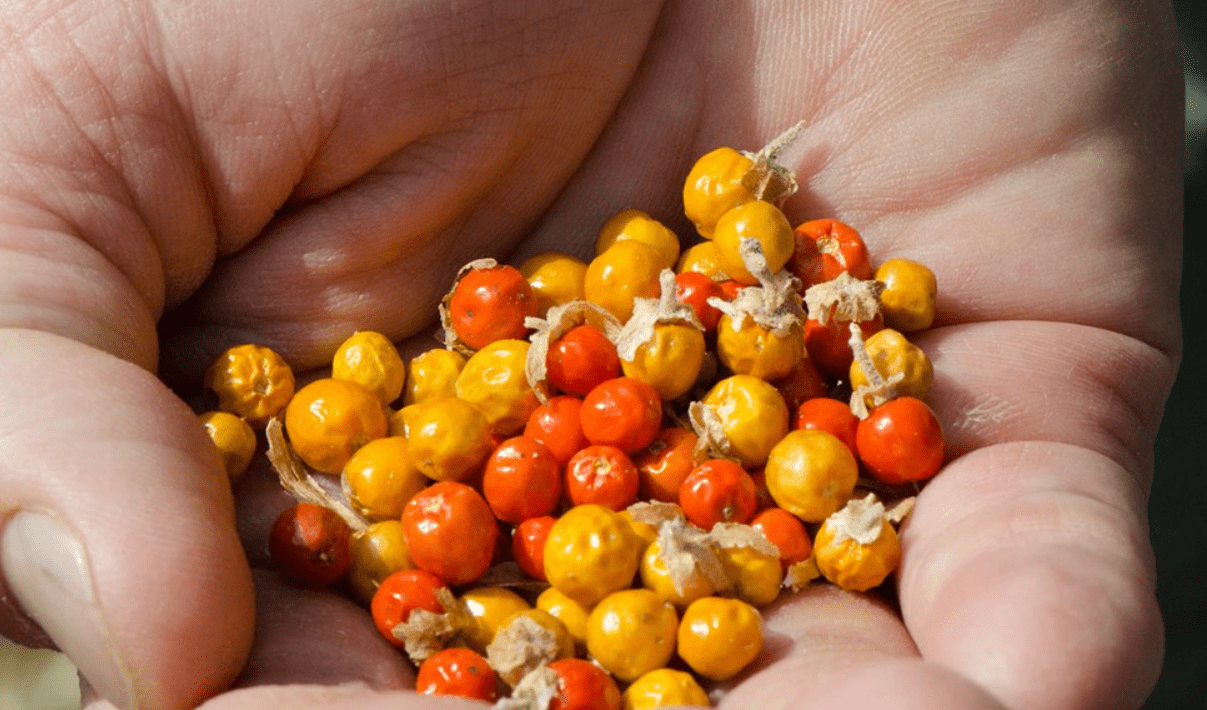
Most research points to the 30-day mark as the time when you start to see most of the benefits of taking ashwagandha supplements.
You could potentially experience advantages much earlier, but four weeks and beyond will give you tremendous bang for your supplement buck.
When you begin to test ashwagandha out for yourself, make sure to keep with it for at least a month before you come to a final decision.
Can You Take Ashwagandha Every Day?
Of course! Ashwagandha supplements come in small enough doses to not have to cycle on and off. Like any vitamin or mineral, ashwagandha is safe for daily consumption.
Ashwagandha Side Effects
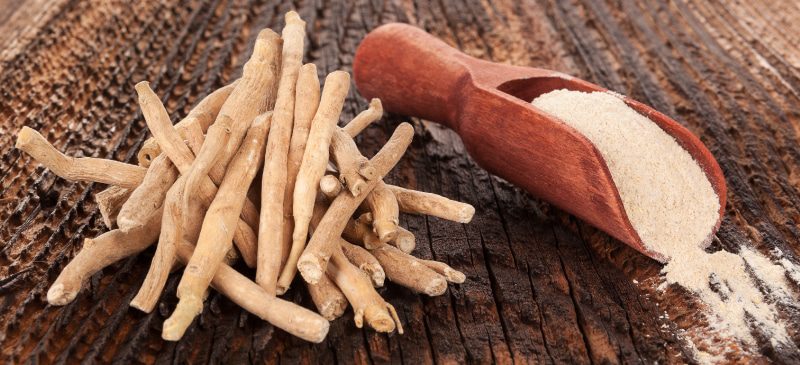
It’s generally accepted that ashwagandha is safe to take in moderate doses. However, there haven’t been any long-term studies on the possible side effects of ashwagandha.
There’s one thing we do know, though: Pregnant women should avoid taking ashwagandha, as it can induce early delivery.
Another thing to take into consideration is that manufacturers of ashwagandha supplements aren’t regulated by the U.S. Food and Drug Administration (FDA).
Therefore, these products don’t have to be held to the same standards compared to an FDA-approved supplement.
Interactions With Other Medications

There are a few particular medications that ashwagandha interacts with. If you are on any of these, please avoid ashwagandha or consult your primary health professional about mixing ashwagandha supplements with your current medication.
Here are the medications ashwagandha has a moderate interaction with (be cautious with these combinations):
- Diabetes medications
- Medications for high blood pressure
- Immunosuppressants
- Sedative medications (both Benzodiazepines and CNS depressants)
- Thyroid hormones (this one is minor, but you should still exercise caution)
Again, it is crucial that you discuss ashwagandha supplementation with your doctor before taking it when you are on these medications.
Studies Carried Out on Ashwagandha
Among the adaptogens and traditional medicine, ashwagandha is one of the very few associated with “masculinity” and has been found to increase testosterone levels in men. Supplement company marketing will tend to run away with “testosterone boosting” claims before the research really validates the claims, but where are we with ashwagandha and its ability to boost testosterone? Here are some high-quality research studies which support that notion, and also lend some credibility to the sometimes far-fetched supplement company claims;
| A Randomized, Double-Blind, Placebo-Controlled, Crossover Study Examining the Hormonal and Vitality Effects of Ashwagandha (Withania somnifera) in Aging, Overweight Males | |
| Effect | Increase in testosterone (14.7%) |
| Population | Overweight men aged 40–70 years, with mild fatigue |
| Number of participants | 57 (28 in intervention group) |
| Study length | 16 weeks |
| Dosage tested | 600mg delivering 21 mg of withanolide glycosides |
| “The findings from this study demonstrated that 8 weeks of supplementation with an ashwagandha extract (Shoden beads, 600 mg daily delivering 21-mg withanolide glycoside) was associated with significant improvements in salivary DHEA-S and testosterone, but not cortisol and estradiol, in healthy males aged between 40 and 70 years.” |
| An investigation into the stress-relieving and pharmacological actions of an ashwagandha (Withania somnifera) extract | |
| Effect | Increase in testosterone (11.4%) in males |
| Population | Healthy male and female adults aged between 18 and 65 years |
| Number of participants | 60 (30 in intervention group with 19 being male) |
| Study length | 60 days |
| Dosage tested | 240 mg of an ashwagandha extract with 84 mg withanolide glycosides |
| “The findings from this study support the positive anxiolytic effects of a novel ashwagandha extract taken for 60 days at a dose of 240 mg daily… The ashwagandha extract was well-tolerated with no reported significant adverse effects. Supplementation was associated with a reduction in cortisol and DHEA-S, and a positive, although nonsignificant trend of increased testosterone in men. These results suggest the anxiolytic effects of ashwagandha in stressed adults may be associated with an attenuating effect on HPA axis activity and, in men, increased testosterone production.” |
| Examining the effect of Withania somnifera supplementation on muscle strength and recovery: a randomized controlled trial. | |
| Effect | Increase in testosterone (15.3%) |
| Population | 57 young male subjects (18–50 years old) with little experience in resistance training |
| Number of participants | 57 (29 in intervention group) |
| Study length | 8 weeks |
| Dosage tested | 600mg ashwagandha root daily |
| “This study confirms previous data regarding the adaptogenic properties of ashwagandha and suggests it might be a useful adjunct to strength training…Over the eight weeks, there was a significant increase in testosterone level in the ashwagandha treatment group relative to the placebo group. The increase in testosterone level was significantly greater with ashwagandha supplementation than with the placebo.” |
Other supplements That Can Boost Testosterone Levels
Other supplements may also have the ability to boost testosterone levels. Whilst they may not all be as potent as ashwagandha, they could be a viable alternative if for whatever reason ashwagandha is not available or suitable for you.
- Tribulus Terrestris
- Dehydroepiandrosterone (DHEA)
- Vitamin D
- Horny goat weed
- D-Aspartic Acid
- Fenugreek
- Ginger
- Zinc
Top Ashwagandha Supplements Reviews
Havasu Nutrition Premium
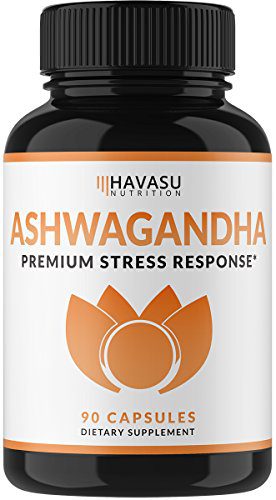
Next is an ashwagandha capsule made by the people over at Havasu Nutrition.
While it doesn’t include the hard KSM-66 version of ashwagandha, we believe the sheer amount of root extract is enough to give this supplement careful consideration.
The cool aspect about Havasu Nutrition Premium Ashwagandha is that it includes artichoke leaf extract, which is added to increase the absorption rate of ashwagandha.
So not only are you getting 1,000mg of quality ashwagandha root powder, you’re getting a better absorption because of the artichoke leaf extract.
Each bottle of Havasu Nutrition Premium includes 45 two-capsule doses, giving you a month and a half of ashwagandha benefits.
Havasu Nutrition Premium Ashwagandha is efficient, full of the one ingredient you want, and is fairly inexpensive compared to some other ashwagandha supplements. So it’s definitely worth the try!
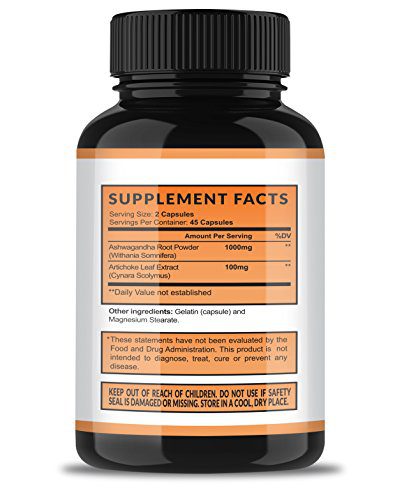
Havasu Nutrition on Amazon.com
Cooper Biotech
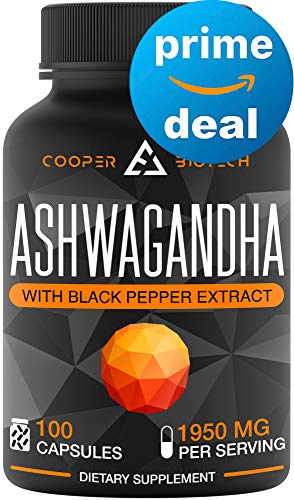
Lastly, we have an ashwagandha supplement from Cooper Biotech. This one differs from the others on this list by a single ingredient, another addition that could help with absorption rates.
Cooper Biotech Ashwagandha includes black pepper extract, which we’ve covered before as a solid absorption enhancer for other helpful supplements like turmeric.
Each capsule has 650mg of ashwagandha, with 15mg of black pepper extract. Now, they say the dosage is three capsules daily, which gives you 1,950mg of ashwagandha.
That’s a lot! You can easily get away with one or two capsules per day, which increases the lifespan of your bottle.
Seeing as there are 100 capsules, you can either go full-bore and take the 1,950mg serving for a little over a month or stretch it out for as long as over three months!
The best thing about Cooper Biotech is its crazy amount of ashwagandha per pill. This allows you to test for the long-term, which will allow for more accurate results.
For an inexpensive, solid ashwagandha supplement to experiment with if you aren’t sure, you can’t beat Cooper Biotech Ashwagandha.

Get Cooper Biotech on Amazon.com
FAQs Related to Ashwagandha and Testosterone
How much does Ashwagandha increase testosterone?
Studies show that ashwagandha supplementation can increase testosterone levels by over 15% in some populations. The dosage and length of treatment appears to have a significant effect in these studies.
Is Ashwagandha better in capsule or powder?
This depends entirely on the source. However, if all being equal on the quality front, powder may be more cost effective in most cases but carries with it a reportedly bitter taste. Capsules may simply be more practical but less cost effective.
Does Ashwagandha affect hormones?
Ashwagandha does appear to increase testosterone and DHEA whilst reducing cortisol.
Who should not take ashwagandha?
Ashwagandha is generally safe, however it is recommended that the following do not take it or at least consult with their respective healthcare practitioner before considering using it; pregnant and breastfeeding women, diabetics, those with hyper / hypotension, those with stomach ulcers, those with auto-immune diseases, those with thyroid issues and those who may be going for surgery.
Does Ashwagandha cause hair loss?
No, if anything it may have a protective effect.
Can Ashwagandha cause weight gain?
Not directly no. However, performance increases in the gym may lead to greater gains in lean muscle mass causing weight gain. This may be offset though by reductions in body fat. So, you’ll be gaining “desirable” weight.
Does Ashwagandha increase appetite?
Again, not directly no, but could tie into increases in lean body mass and increased exercise performance.
Does Ashwagandha make you drowsy?
It has been reported in some studies but the mechanism isn’t clear nor is the report consistent. It may have been caused by confounding factors.
Conclusion
At the end of the day, ashwagandha is a safe, potent, beneficial Ayurvedic medicine that should definitely be part of your daily routine.
This root from across the world could provide a world of value for you.
It works by up-regulating your hormonal systems, increasing testosterone, reducing cortisol, and improving your entire workout experience.
Not only that, but women can use it too!
You know the dosage, the timing, the side effects with certain medications, and which products are worth looking into.
Do your own research, test out a handful of ashwagandha supplements yourself, and find one that works for you. When you start experiencing the benefits of taking ashwagandha, you’ll wish you had known about it sooner!
Here’s to an advanced, upgraded workout and lifestyle with ashwagandha!

